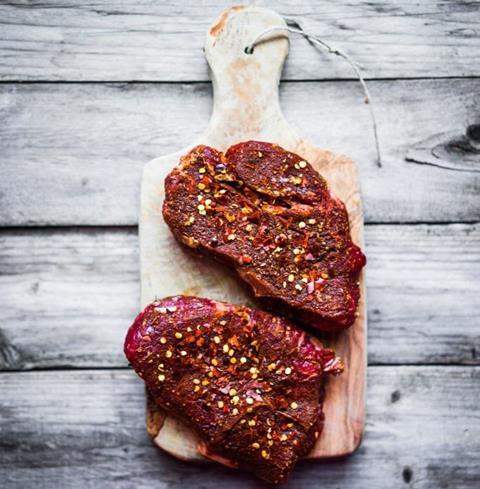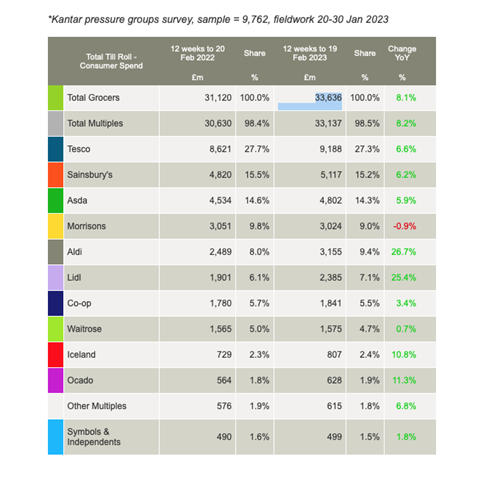In the four weeks to the 19th February 2023 Kantar has reported that grocery price inflation is now at 17.1% - the highest level it has ever recorded.

However, it’s not all doom and gloom as supermarkets and shoppers are seen to be adapting to manage rising prices.
Fraser McKevitt, head of retail and consumer insight at Kantar explained: “With Valentine’s Day falling on a Tuesday and many feeling the pinch, some shoppers decided to show their love at home this February. Supermarket sales of steak rose by a quarter in the seven days to 14th February compared to the previous week, while chilled ready meal sales were nearly one third higher.”
Overall take-home grocery sales increased by 8.8% during the four weeks and by 8.1% over the 12-week period.
McKevitt continued: “Shoppers have been facing sustained price rises for some time now and this February marks a full year since monthly grocery inflation climbed above 4%. This is having a big impact on people’s lives.
“Our latest research shows that grocery price inflation is the second most important financial issue for the public behind energy costs, with two-thirds of people concerned by food and drink prices, above public sector strikes and climate change. One quarter say they’re struggling financially, versus one in five this time last year. The numbers speak for themselves. If people don’t change how they buy their groceries, households are facing an £811 increase to their average annual bill.”
So, how are supermarkets and shoppers adapting to manage rising prices? McKevitt explained: “The battle to offer best value for consumers continues in this intensely competitive sector, particularly as the traditional retailers look to protect market share from the discounters. Own label ranges have been one obvious focus and shoppers have consistently bought them over brands since February last year. Sales of these lines are up by 13.2% this month, well ahead of branded products at 4.6%, a trend that shows little sign of stopping.”
Retailer market shares
Kantar also reports that Aldi pushed its market share to a new record this period hitting 9.4%. It remains the fastest growing grocer, with sales up by 26.7%.
It was closely followed by Lidl which increased sales by 25.4%. Lidl’s share of the market now stands at 7.1%.
Convenience retailer Co-op increased sales by 3.4% while independents and symbols were up by 1.8%.
Frozen food specialist Iceland also won share, taking 2.4% of market sales, up from 2.3% last year as spending through its tills increased by 10.8%.
Ocado put in a strong performance, bucking the overall trend in online sales. While online fell by 0.9% over the 12 weeks, the digital specialist grew sales by 11.3% to achieve its largest ever market share of 1.9%.
Tesco edged slightly ahead in the battle between Britain’s biggest retailers, with sales up by 6.6%.
Sainsbury’s and Asda were just behind with sales rising by 6.2% and 5.9% respectively.
Waitrose returned to growth, nudging up sales by 0.7%. It has a market share of 4.7%.
Morrisons’ sales decline of 0.9% was its best performance since May 2021.
The graphic below, courtesy of Kantar, shows the full data.

This story was originally published on a previous version of the Meat Management website and so there may be some missing images and formatting issues.















